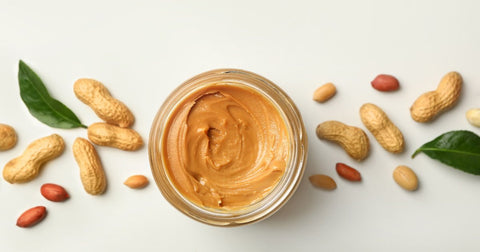Ever wondered what "natural flavors" really mean on a food label? It sounds wholesome, but the reality might surprise you. Let's dive into the definition, how these flavors are made, their potential impact on health, and why understanding ingredients is key to a healthy diet.

What is Natural Flavor? The FDA Definition
The U.S. Food and Drug Administration (FDA) defines "natural flavor" as a substance extracted, distilled, or similarly derived from plant or animal sources. This includes fruits, vegetables, herbs, spices, meat, poultry, fish, and dairy products. Sounds natural, right? Here's where it gets tricky.
Natural Flavors Meaning: More Than Meets the Eye
The term "natural" can be misleading. Here's the catch:
- Processed Origins: While derived from natural sources, natural flavors undergo significant processing, including heating, fermentation, or enzymatic reactions.
- Not Always Pure: Natural flavors can also include trace amounts of synthetic solvents or preservatives used in the extraction process.
- Ingredient Blends: The "natural flavor" you see on a label can actually be a complex mixture of many different flavor compounds, not just a single ingredient.
How Are Natural Flavors Made? A Behind-the-Scenes Look

1. Sourcing: Flavor chemists begin by sourcing raw materials like fruits, vegetables, or spices.
2. Extraction: They then use various methods (heating, distillation, etc.) to extract the desired flavor compounds.
3. Blending: These compounds are often combined with other ingredients, both natural and synthetic, to create a more complex and desirable flavor profile.
4. Labeling: The final product is simply labeled as "natural flavor."
Are Artificial Flavors Bad for You? The Ongoing Debate
While both artificial and natural flavors are heavily processed, artificial flavors are entirely lab-made. The safety of artificial flavors has been questioned due to potential links to allergies and other health concerns. However, more research is needed to fully understand their long-term effects.
What Does Natural Flavors Mean for Your Health?
The impact of natural flavors on health isn't fully understood. Here's what you should know:
- Generally Safe: They're considered safe for consumption in the amounts typically found in food.
- Potential for Sensitivities: Some individuals might be sensitive to certain natural flavors, experiencing headaches, nausea, or digestive problems.
- Hidden Ingredients: The lack of transparency on ingredient lists makes it difficult to know what's actually in "natural flavors."
Food Intolerances and Natural Flavors: Could They Be Linked?

Absolutely! While the specific components of natural flavors aren't always disclosed, they could include ingredients that trigger sensitivities in some individuals.
- Digestive Upset: If you regularly experience gas, bloating, or other digestive issues after consuming foods with "natural flavors," a food intolerance might be at play.
- Finding Answers: A food sensitivity test can help identify specific triggers, allowing you to make informed choices and avoid discomfort.
Take Control of Your Diet: Explore Food Sensitivity Testing
The Takeaway
"Natural flavors" might not be as simple or straightforward as they seem. While generally considered safe, the lack of transparency can be concerning, especially for those with sensitivities. If you experience any reactions to foods containing natural flavors, consider talking to your doctor or trying a food intolerance test to uncover hidden triggers. Ultimately, the most "natural" approach to eating is to focus on whole, unprocessed foods as much as possible, where you know exactly what you're putting into your body.
Frequently Asked Questions:
1. I see "natural flavors" on so many products. Are they always safe to eat?
In general, natural flavors are considered safe for consumption. However, since they can be complex mixtures, some individuals might have sensitivities to specific components. If you notice digestive issues or other reactions after eating foods with natural flavors, it's worth exploring further.
2. Are natural flavors healthier than artificial flavors?
Both undergo extensive processing, so it's not necessarily a clear-cut "healthier" choice. Some people prefer natural flavors due to their origin in plants or animals, but the final product can be significantly altered from its source.
3. I have food intolerances. Should I avoid foods with natural flavors?
It depends. If you know your specific food triggers, you can check ingredient lists carefully. If you're unsure, consider a food sensitivity test to identify potential sensitivities that could be causing reactions.
4. Are there any regulations around the use of natural flavors in food?
Yes, the FDA regulates natural flavors, but the term is broad and the labeling requirements are not always transparent. Manufacturers don't have to disclose the exact components of a natural flavor blend.
5. What are some examples of natural flavors that might be used in food?
Natural flavors can come from a wide range of sources, including fruit extracts, spice oils, vegetable powders, and even fermented products. They can mimic flavors like vanilla, strawberry, or even meaty flavors.


.png?v=1737390083)
.png?v=1737187409)


